Political upheaval in Greenland — What does Inuit Ataqatigiit do now?
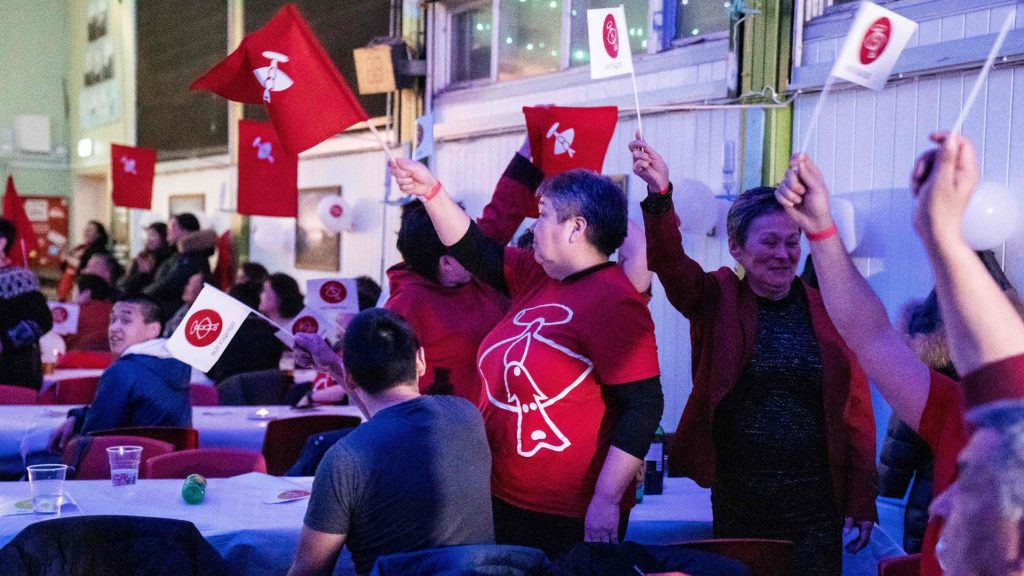
The future of a rare earth mineral extraction project in Greenland is now up in the air, after the left-wing Inuit Ataqatigiit party won Greenland’s election on Tuesday in a campaign often dominated by the controversial mining plan.
As the dust settled Wednesday, elections Greenland reported Inuit Ataqatigiit won with 36.6 per cent of the vote, defeating the ruling Siumut party which received 29.4 per cent.
Inuit Ataqatigiit, led by Mute Bourup Egede, will hold 12 of the 31-seats in the Inatsisartut, the Greenlandic parliament. Siumut, led by Erik Jensen, will hold 10, with the remaining seats split among three other parties.
Tuesday’s snap election was triggered this February after the Siumut coalition government fell apart over the Kvanefjeld rare earth mining project.

Siumut has governed in Greenland since 1979, except from 2009-2013 when Inuit Ataqatigiit, lead by Kuupik Kleist, was in power.
“The economic promises of that mine are very large and there must have been a tremendous temptation for politicians and many people in Greenland to say ‘Of course we should embrace this mine, take the royalties, take the taxes, take the jobs and opportunities for growth that could lead towards economic and political independence [from Denmark], but that’s not what happened,” Martin Breum, a journalist and author of serval books about the Arctic, who covered the elections for Danish and other international media, said in a phone interview.
“Instead, a majority in Greenland said ‘No Thanks,’ we will not tolerate the risks the environmental risks that this mine represents. We don’t care if [the company] can submit themselves to environmental regulations and is possibly able to operate in the legal boundaries of our environmental laws. We don’t want it.
“I think it’s a testament to the desire to protect the environment and the way of life that a lot of Greenlanders already live. That was the core of the victory for Inuit Ataqatigiit and I think it’s very thought provoking.”
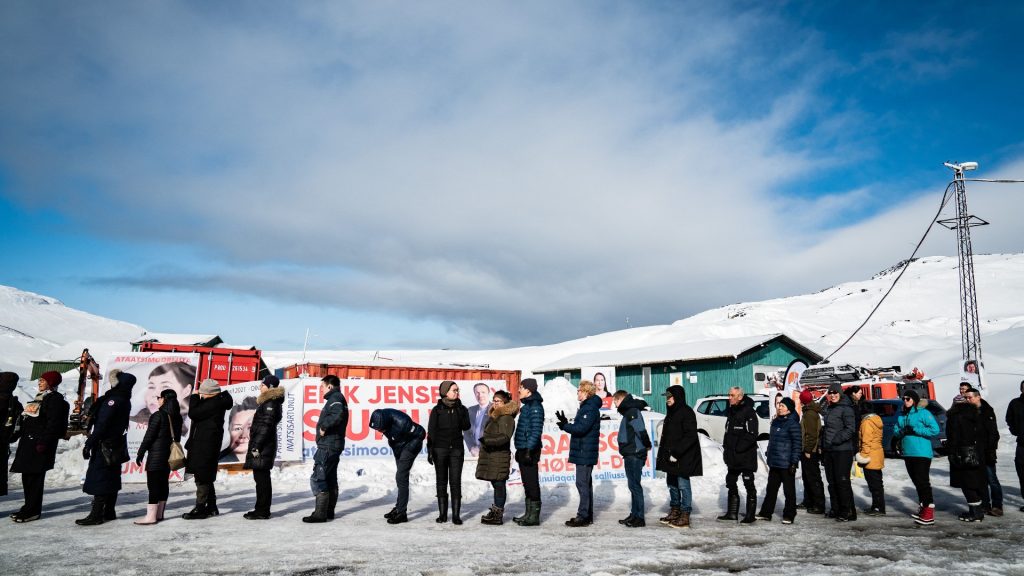
|
PARTY Inuit Ataqatigiit |
LEADER Mute Bourup Egede |
2021 VOTE %
(2018 VOTE %) 36.6 % (25.5%) |
SEATS
12 |
|
|---|---|---|---|---|
| Siumut | Erik Jensen | 29.4 % (27.2%) | 10 | |
| Naleraq | Hans Enoksen | 12% (13.4%) | 4 | |
| Democrats | Jens Frederik Nielsen | 9.1% (19.5%) | 3 | |
| Atassut | Aqqalu Jerimiassen | 6.9% (5.9%) | 2 |
Source: Elections Greenland
Contentious dispute
The project, also known as Kuannersuit in Greenlandic, has been an ongoing source of controversy in the territory.
Australian company Greenland Minerals, holds the license to the project and says it has the potential to become ” … the most significant western world producer of rare earths.”
The project is slated to consist of a mine, a concentrator and refinery.
Rare earth minerals are used in everything from electronics to automobiles. Greenland Minerals says it projects that 80 per cent of the project’s revenue would come from rare earth minerals, with the remaining 20 per cent made up of uranium, zinc and fluorspar by-products.
Exploration for the project has been ongoing over a decade. Public consultations have begun and are slated to go on through June.
Siumut has long touted the economic and job spin-offs of the potential project in an area of Greenland that has long suffered de-population and high unemployment. The party has also promoted the project’s potential to help facilitate independence.
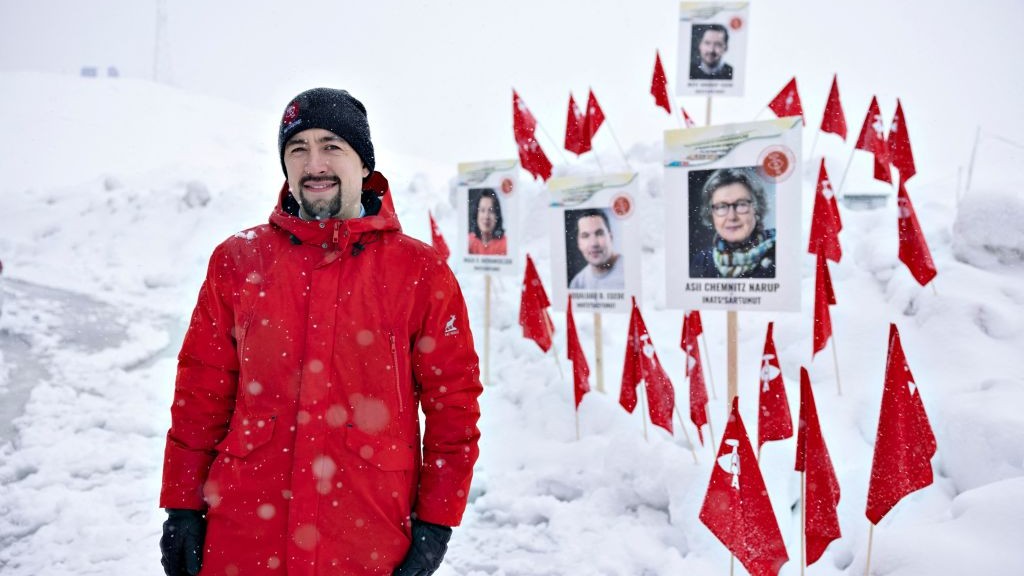
Greenland, with a population of 56,000 people, is an autonomous territory within the Kingdom of Denmark. The territory has had home-rule government since 1979, with Denmark responsible for things like foreign affairs and the military. Denmark also provides an annual subsidy of 4.5 billion Danish kroner (approximately $900-million CDN).
But Inuit Ataqatigiit, also a pro-independence party, has raised ongoing concerns about the project on everything from its longterm impact on the environment to the potential health impacts of the uranium byproducts for neighbouring communities.
The party says the focus should be on developing things like tourism and farming to help build up the region’s economy and that independence in general can and should be achieved on a more diverse economic base.
What does Inuit Ataqatigiit do now?
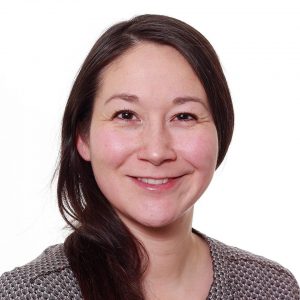
Inuit Ataqatigiit has frequently evoked the possibility of a referendum on the project’s future. But a supplementary agreement to the project, signed by Kuupik Kleist during the previous Inuit Ataqatigiit government, also allows for the project to be dismissed for political or technical reasons without being sued.
Parnuna Egede Dahl, a joint PhD Fellow at Ilisimatusarfik, the University of Greenland, and Denmark’s Aalborg University, and whose work looks at the use of indigenous knowledge in environmental impact assessments of extractive industry projects in Greenland, says all eyes are now on how Inuit Ataqatigiit handles the Kuannersuit project question once in power.
“I’m really interested to see what Inuit Ataqatigiit does now,” said Egede Dahl in phone interview from Denmark. “They’ve been asking for a referendum several times. But now that they’re in power, will they still ask for one? Or will they use the supplementary agreement to dissent from the project?”
‘There’s a civil war going on in Siumut’

Inuit Ataqatigiit is credited with running a disciplined and focused campaign and picked up seats mostly from voters abandoning the Democrats party. And although Siumut was able to add one seat, going from 9 to 10 in the election, political watchers say Siumut’s implosion over leadership struggles, likely played a key role in their eventual overall loss on Tuesday.
Premier Kim Kielsen was ousted as Siumut chairman in a November party congress over domestic issues and what was often described as a top-down leadership style that was counterproductive to coalition governments. Erik Jensen was named as his replacement but despite this, Kielsen refused to step down as premier.
“There’s a civil war going on Siumut that’s been going on for years that wasn’t really about the mining project,” Rasmus Leander Nielsen, an assistant professor at the University of Greenland’s Institute of Social Science, Economics & Journalism, said in a phone interview from Nuuk, Greenland’s capital.
“It’s quite obvious they haven’t made a transition from the former governing party leader, to the new one that was elected at the party congress in November. So there are quite a few take aways from that.”
Egede Dahl agrees.
“The internal trouble in the Siumut party really cost them trust and votes,” she said. “They need a more stable internal party environment to show voters that they can work on party politics instead of focusing on politics within their party.
“If they can do that, I think they would get the trust back.”
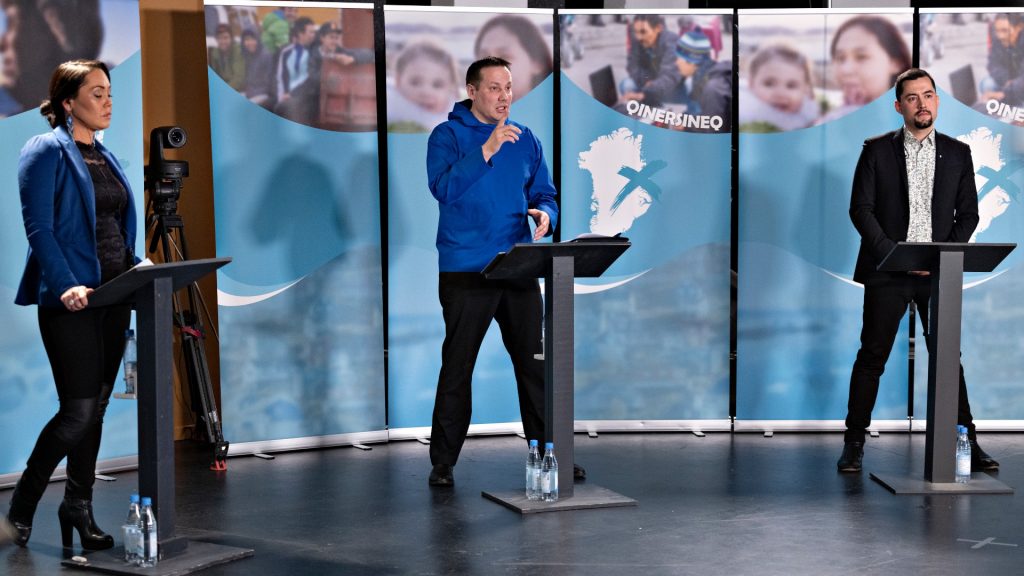
The picture is further complicated by the amount of votes received by Kim Kielsen (1,841) vs Erik Jensen (1,186).
Rumors are already swirling that Kielsen may call an extraordinary party congress and use the election result to demand a revote about who should be leader of the party.
Coalition talks ahead
Sixteen seats are required to form an outright majority in the Inatsisartut.
Inuit Ataqatigiit is expected to wrap up coalition talks over the next 7-14 days.
A previous version of this story incorrectly said that it was Mute Bourup Egede that recieved 1,186 personal votes. In fact, it was Erik Jensen, leader of Siumut that received 1,186 votes. Mute Bourup Egede, leader of Inuit Ataqatigiit recieved 3,380 votes.
Also, a reference to China’s Shenghe Resources being the majority shareholder to the Greenland Minerals mining project as been removed. In fact, it is a minority shareholder with a 9.3 per cent stake.
This version has been corrected.
Write to Eilís Quinn at eilis.quinn(at)cbc.ca
Related stories from around the North:
Canada: Mining companies in Nunavut, Canada defend environmental management despite stiff criticism, CBC News
Finland: Miners hunting for metals to battery cars threaten Finland’s Sámi reindeer herders’ homeland, Yle News
Greenland: Arctic island finds green power can be a curse, Thomson Reuters
Russia: Can the environment withstand Arctic Russia’s coal mining boom?, The Independent Barents Observer
Sweden: Reducing emissions could create up to 3,000 new jobs in Arctic Sweden says mining group, Radio Sweden
United States: Conservation groups sue government over Alaska mining road, The Associated Press



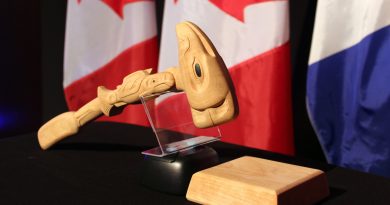
This is the type of stories that need to be told to other people all over the world. Where ever people are we are interested in real stories that are impacted by people like these Alaskan Tribes stories. Tribal People are not conquered people. No matter where we are located and lived. We are of the historic hope today that needs to remain strong and belief in our old traditional ancestors who were before us and held us in prayer for a new day, a new way and a new belief of having hope within. Remain Safe. TMT